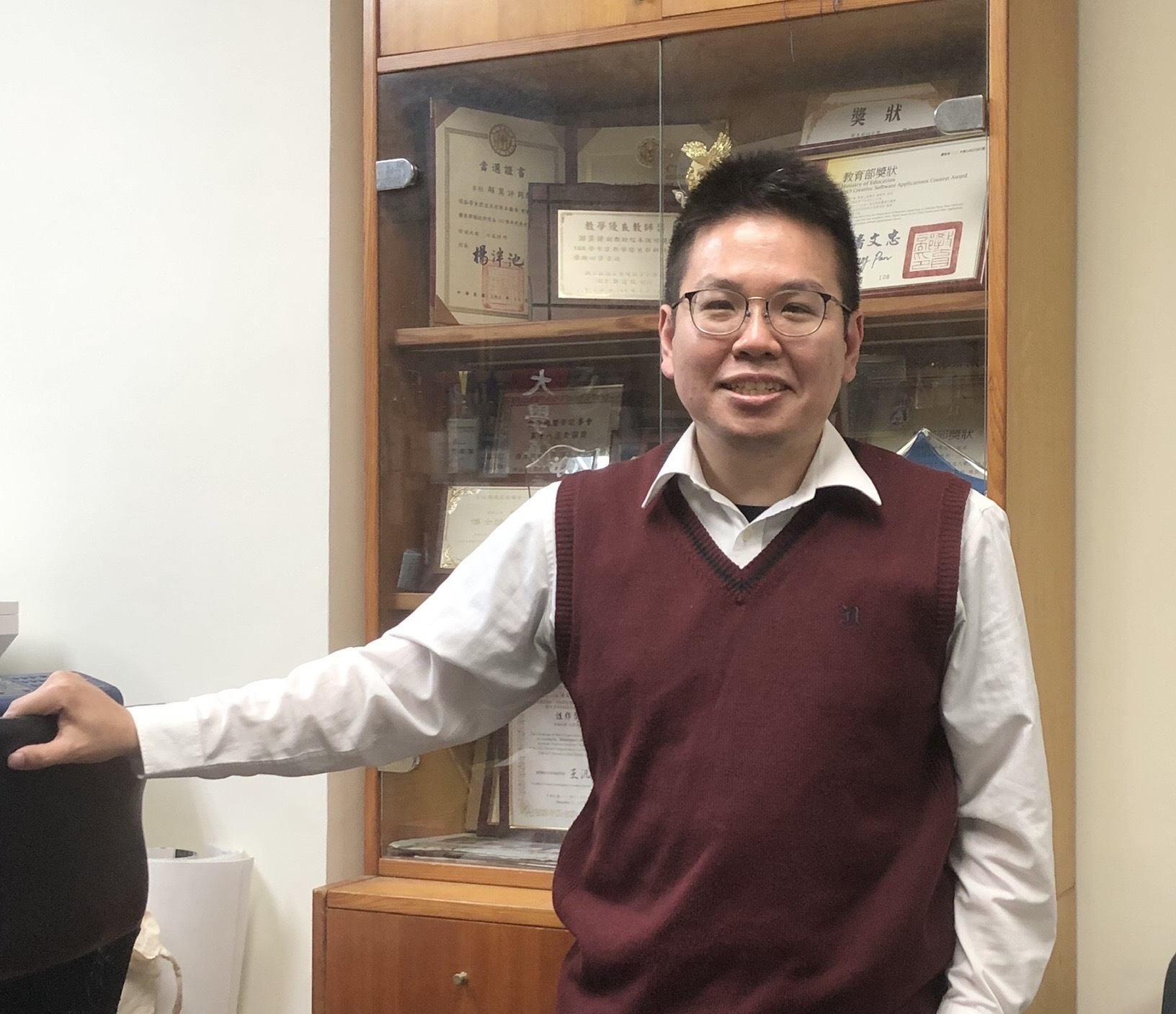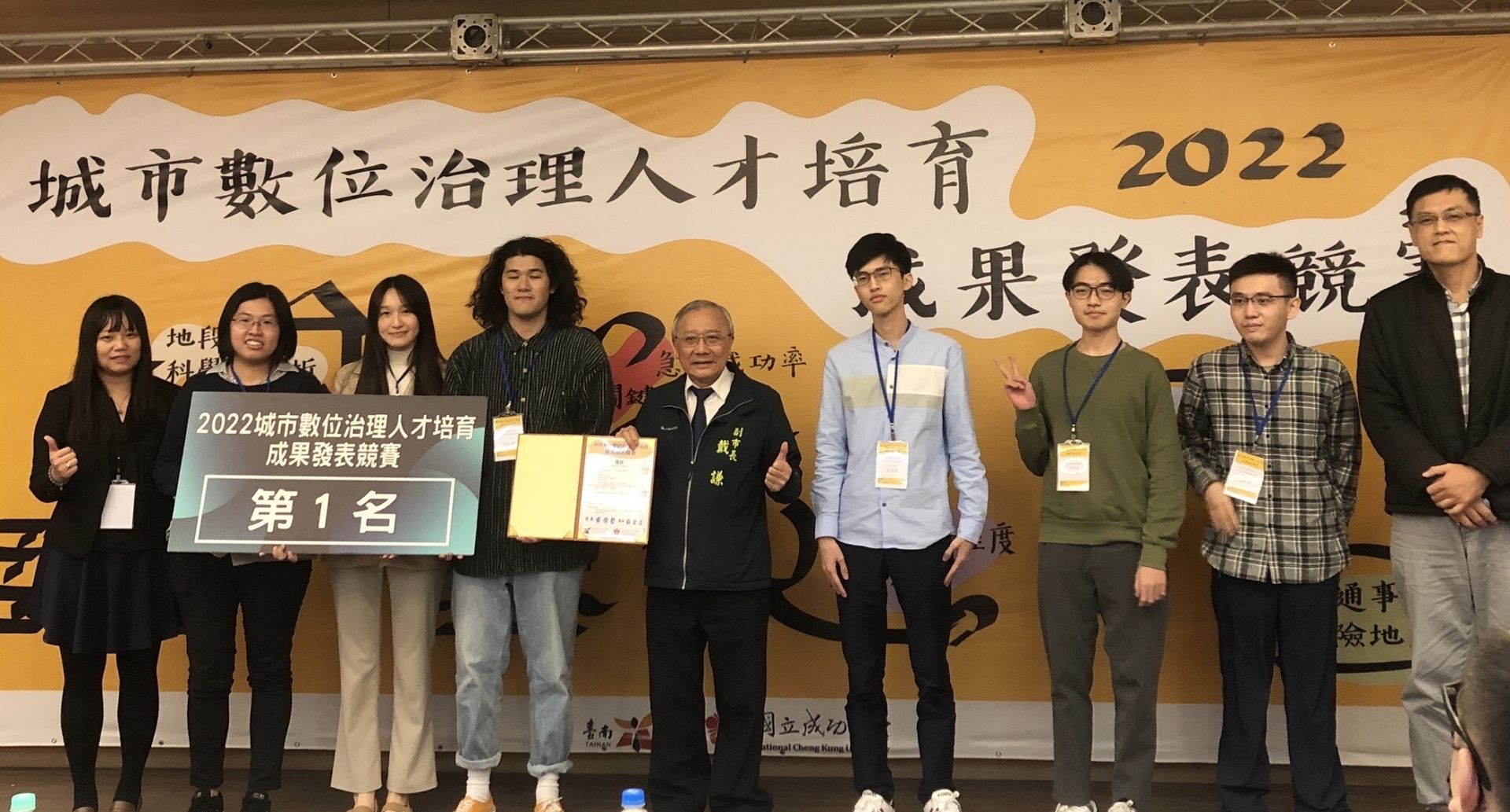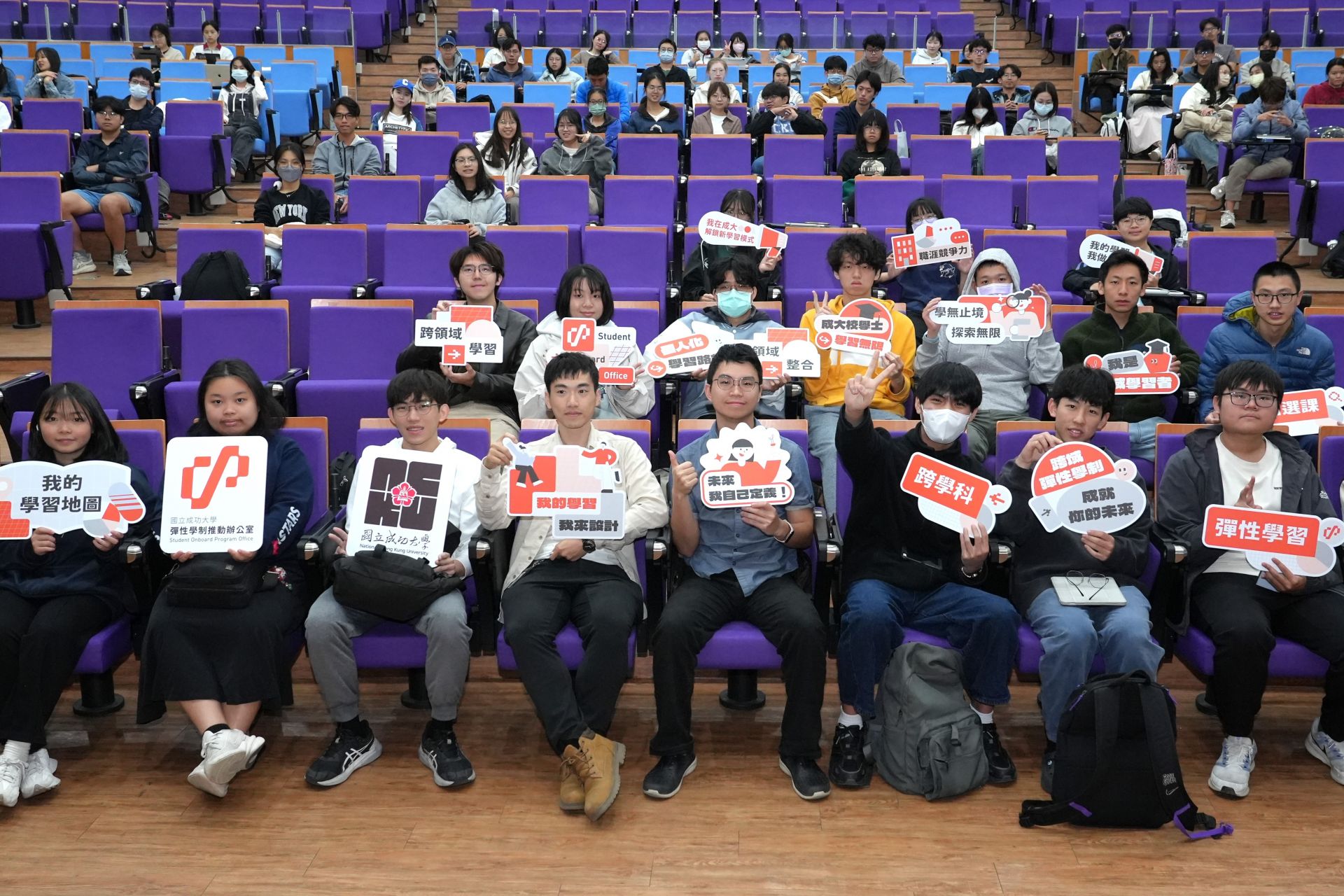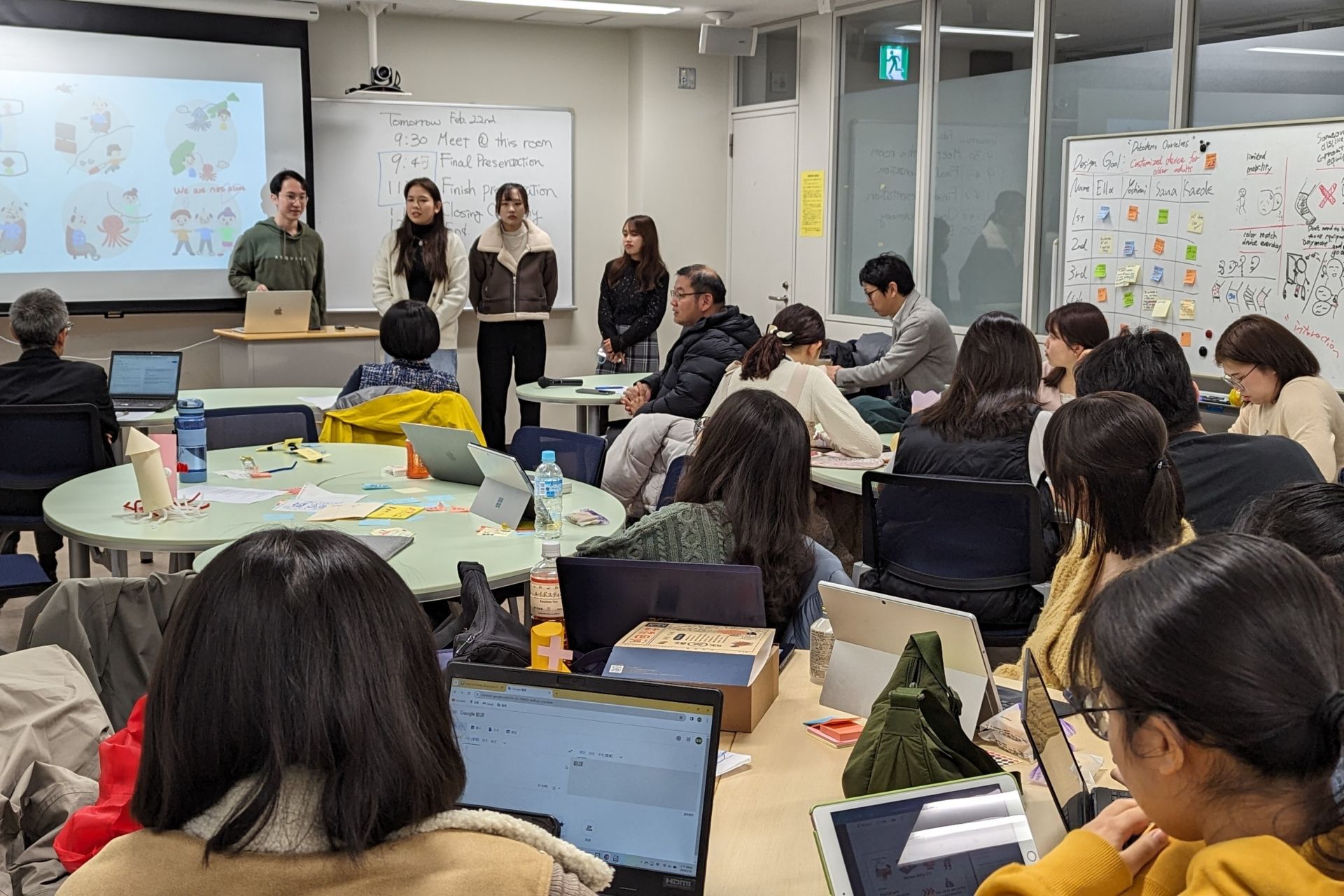SDG4
NCKU combines government, industry, and academia for practical applications, fostering talent in AI city governance and big data
With its profound academic research and technological accumulation, National Cheng Kung University (NCKU) has actively promoted the establishment of smart campuses and smart cities by integrating industry, government, academia, and practical applications. NCKU has used its campus as a testing ground to assist Tainan City in gradually building a smart city. Since 2017, NCKU has collaborated with the Tainan City Government to create the AI City Governance and Data Talent Cultivation Program, which is a unique collaboration model in Taiwan that emphasizes "co-creation by government and academia, and co-cultivation of talents," integrating practical business with academic research.
Professor Hsun-Ping Hsieh, the project leader and a professor in the Department of Electrical Engineering at NCKU, has expertise in advanced AI technology and big data analysis. To advance the training program jointly developed by NCKU and the Tainan City Government, Professor Hsieh initiated case sharing and related knowledge training on AI applications at various bureaus of the city government. He then liaised with the teams responsible for each bureau to understand the current operational pain points and governance needs that AI data utilization could potentially address.
Simultaneously, back to the class, Professor Hsieh launched an elective course on urban governance, encouraging students to participate in public affairs. In addition to systematic course arrangements, student groups were formed to conduct research on the pain points of various bureaus. Particularly noteworthy is the integration of students from different disciplines and public servants in this course, allowing for collaborative learning and research. The problem-based learning approach enables students to define their learning needs while understanding the problems, and facilitates ongoing guidance and in-depth discussions with teachers.
Professor Hsieh stated that this interdisciplinary and cross-border collaborative learning course is excellent. Students break away from purely theoretical learning and gain an early understanding of the operation and processes of public affairs. After communication between students and public servants, they contemplate how to creatively use technology to address problem points, providing valuable learning opportunities and preparing them to face real-world feedback.
Professor Hsieh has observed that the research conducted by students after participating in the course is more practical. Technical personnel also break away from existing thinking patterns, listen, and respect user-centric perspectives. Students often encounter challenges in interdisciplinary expertise and data collection during the research process, but these challenges also enhance their communication skills, information integration capabilities, and problem-solving abilities. Over the past three years, students who have participated in the course at NCKU have published several high-quality papers and have been awarded multiple domestic and international industry-academia awards.
Professor Hsieh further stated that as the project leader, he deeply felt the openness of the public sector to data utilization and the expectations for AI technology in digital governance. Therefore, he was able to smoothly integrate the public sector with students to form teams that produced research results that exceeded expectations after interdisciplinary collaboration. The research outcomes are not only comprehensive but also highly practical. For example, the parking prediction and guidance system developed in collaboration with the Transportation Bureau can be directly implemented in areas with heavy urban parking demand. Additionally, the AI interpretation of land use collaborated with the Finance and Local Tax Bureau has achieved nearly identical results as those assessed by real estate experts, objectively and accurately determining the residential value of land, reducing over 67% of the current land-use inspection workload.
Professor Hsieh expects the student groups to continue optimizing the systems, ultimately implementing and transplanting them for use by the public sector. The outlook for government cooperation is to move from a point-to-point approach to a comprehensive integration and analysis of data across departments. Through AI technology, Tainan City aims to create a more comprehensive and technology-driven smart city.
Professor Hsun-Ping Hsieh, the project leader and a professor in the Department of Electrical Engineering at NCKU, has expertise in advanced AI technology and big data analysis. To advance the training program jointly developed by NCKU and the Tainan City Government, Professor Hsieh initiated case sharing and related knowledge training on AI applications at various bureaus of the city government. He then liaised with the teams responsible for each bureau to understand the current operational pain points and governance needs that AI data utilization could potentially address.
Simultaneously, back to the class, Professor Hsieh launched an elective course on urban governance, encouraging students to participate in public affairs. In addition to systematic course arrangements, student groups were formed to conduct research on the pain points of various bureaus. Particularly noteworthy is the integration of students from different disciplines and public servants in this course, allowing for collaborative learning and research. The problem-based learning approach enables students to define their learning needs while understanding the problems, and facilitates ongoing guidance and in-depth discussions with teachers.
Professor Hsieh stated that this interdisciplinary and cross-border collaborative learning course is excellent. Students break away from purely theoretical learning and gain an early understanding of the operation and processes of public affairs. After communication between students and public servants, they contemplate how to creatively use technology to address problem points, providing valuable learning opportunities and preparing them to face real-world feedback.
Professor Hsieh has observed that the research conducted by students after participating in the course is more practical. Technical personnel also break away from existing thinking patterns, listen, and respect user-centric perspectives. Students often encounter challenges in interdisciplinary expertise and data collection during the research process, but these challenges also enhance their communication skills, information integration capabilities, and problem-solving abilities. Over the past three years, students who have participated in the course at NCKU have published several high-quality papers and have been awarded multiple domestic and international industry-academia awards.
Professor Hsieh further stated that as the project leader, he deeply felt the openness of the public sector to data utilization and the expectations for AI technology in digital governance. Therefore, he was able to smoothly integrate the public sector with students to form teams that produced research results that exceeded expectations after interdisciplinary collaboration. The research outcomes are not only comprehensive but also highly practical. For example, the parking prediction and guidance system developed in collaboration with the Transportation Bureau can be directly implemented in areas with heavy urban parking demand. Additionally, the AI interpretation of land use collaborated with the Finance and Local Tax Bureau has achieved nearly identical results as those assessed by real estate experts, objectively and accurately determining the residential value of land, reducing over 67% of the current land-use inspection workload.
Professor Hsieh expects the student groups to continue optimizing the systems, ultimately implementing and transplanting them for use by the public sector. The outlook for government cooperation is to move from a point-to-point approach to a comprehensive integration and analysis of data across departments. Through AI technology, Tainan City aims to create a more comprehensive and technology-driven smart city.

Professor Hsun-Ping Hsieh, the project leader and a professor in the Department of Electrical Engineering at NCKU, has expertise in advanced AI technology and big data analysis.

Since 2017, NCKU has collaborated with the Tainan City Government to create the AI City Governance and Data Talent Cultivation Program, which is a unique collaboration model in Taiwan that emphasizes "co-creation by government and academia, and co-cultivation of talents," integrating practical business with academic research.

SDG4NCKU Partners with ASE to Launch New Specialized Program, to Cultivate Key Talent for the Semiconductor Industry
View more
SDG4NCKU Launches "Interdisciplinary Flexible Curriculum" to Promote Customized Autonomous Learning Pathways
View more



















